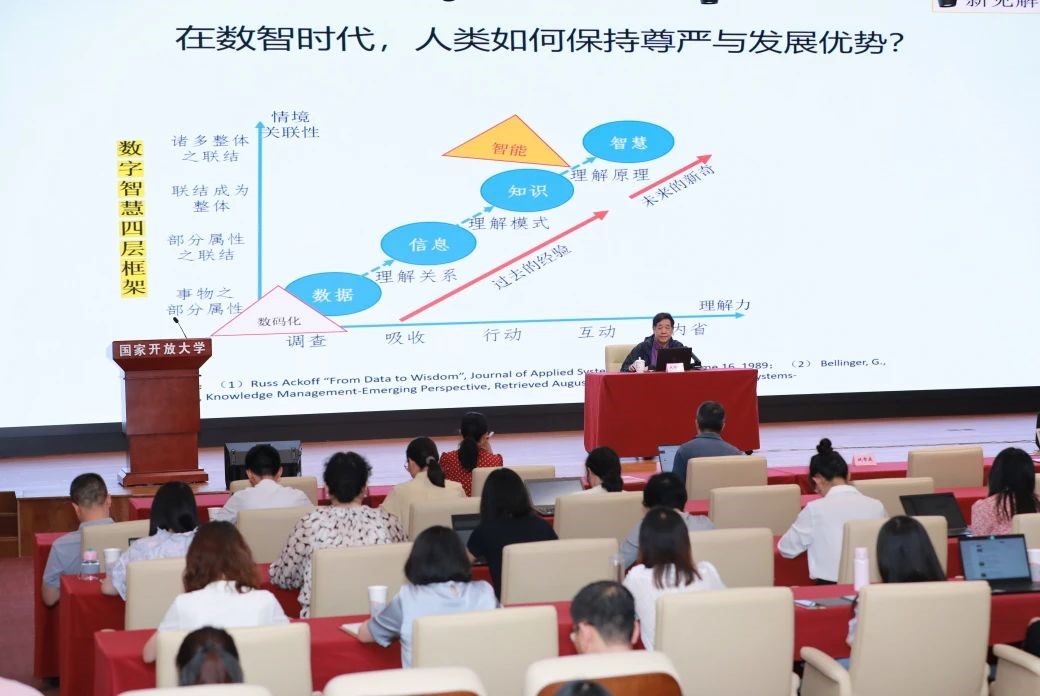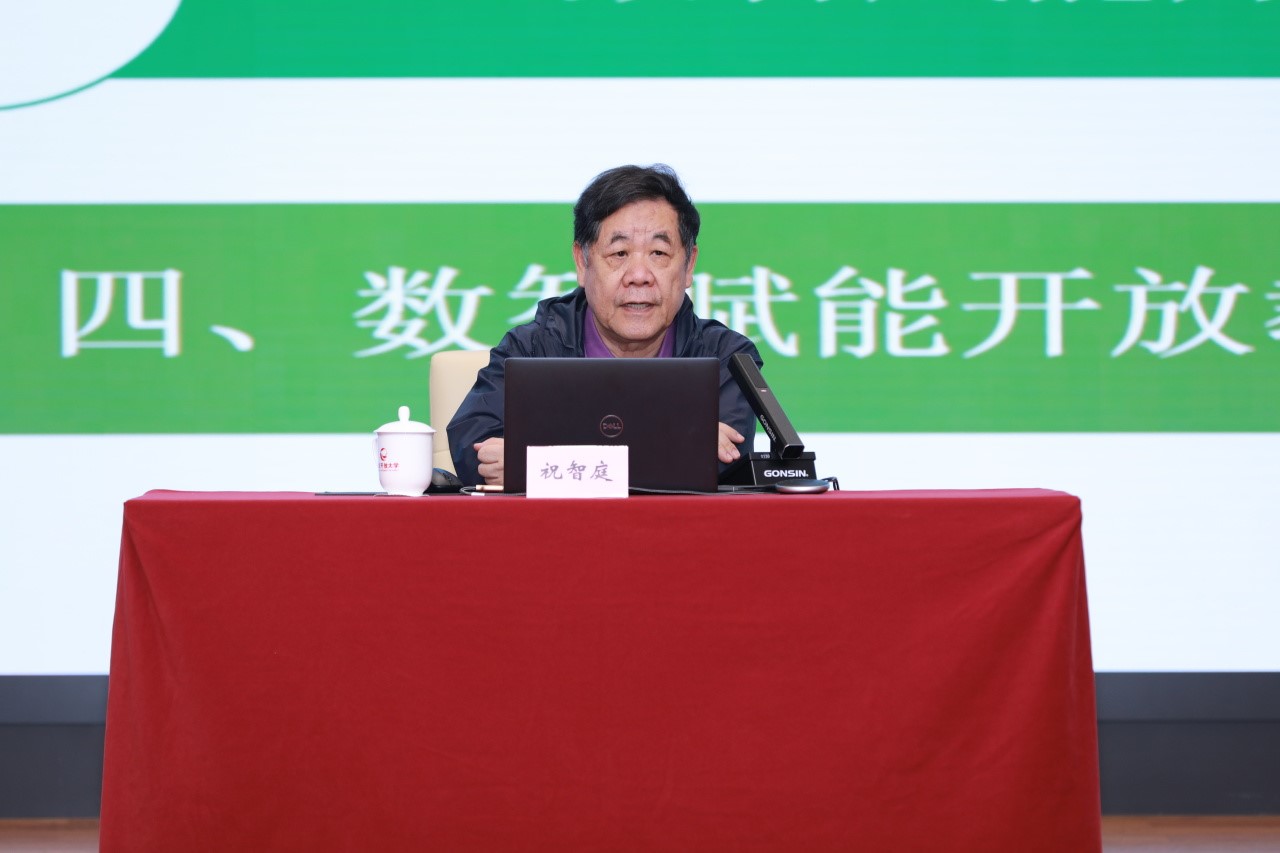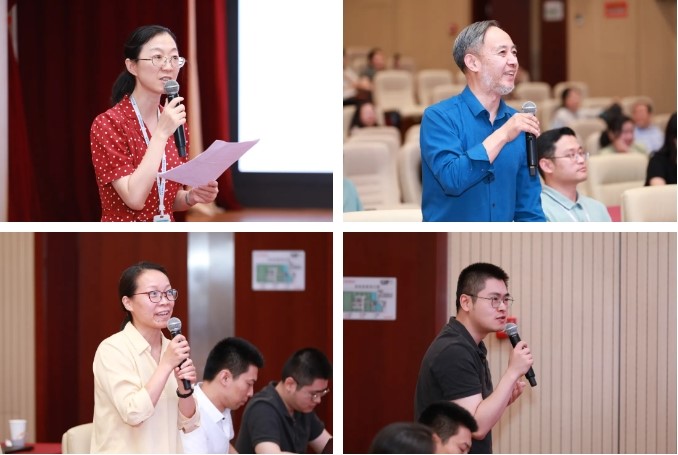 The Lecture on "New Pathways for the Development of Open Education Empowered by Digital Intelligence" was recently held by the School of Education at the Open University of China (OUC) and the Chinese Journal of Distance Education.
The Lecture on "New Pathways for the Development of Open Education Empowered by Digital Intelligence" was recently held by the School of Education at the Open University of China (OUC) and the Chinese Journal of Distance Education.
This event was part of the "Lectures by Famous Teachers from 100 Universities" series, aimed at deepening the study and implementation of the 20th National Congress of the Communist Party of China's directives, advancing educational digitalisation, and promoting high-quality development in open education.
Zhu Zhiting, a distinguished professor and doctoral advisor in educational technology at East China Normal University, and the chief advisor of the China E-Learning Technology Standardisation Committee (CELTSC), delivered a keynote lecture titled "New Pathways for the Development of Open Education Empowered by Digital Intelligence." The session was chaired by Zhang Xia, dean of the School of Education at the OUC.


Zhu Zhiting delivered the special lecture.
Professor Zhu initiated his lecture by highlighting the new trends in smart education leading the digital and intelligent transformation of higher education. He presented a comprehensive smart perspective on educational digital transformation, detailing the new requirements for open education empowered by digital intelligence. He also outlined the core competencies of new talent, including human-machine symbiotic thinking, AI integration skills, humanistic spirit combined with technological action abilities, pioneering spirit, boundary-breaking capabilities, creative thinking, practical wisdom, global community thinking, cross-cultural action abilities, growth mindset, and high-consciousness learning traits.
Focusing on six major thinking paradigms — digital cultural thinking, open and innovative thinking, skill-centric thinking, 'transgenic' thinking, ecological development thinking, and value-growth thinking, Professor Zhu discussed their core value in fostering innovative changes in China's open education. He identified the entry point for open education's digital transformation as the utilisation of advanced digital technologies to construct a lifelong learning ecosystem. This would facilitate a new paradigm of demand-driven, learner-centric open learning, effectively advancing the construction of a learning society. He also proposed strategies for digitally empowering open education's new qualitative development, including skill and practice-oriented learning, interest-driven learning, interdisciplinary curriculum design, modular learning, micro-credentialing system construction, human-machine collaboration, fostering a digital and open learning culture, and building a lifelong learning system.
During the event, Professor Zhu engaged in an interactive session with the attendees, sparking a lively discussion on various topics, including the professional development of teachers in open education enhanced by digital intelligence. As he patiently addressed their queries, Professor Zhu motivated teachers to fully integrate digital intelligence technologies into their practice, urging them to continually refine their new qualitative proficiencies and adaptability for the digital transformation of education.

Interactive session
This lecture was an important academic exchange activity for the OUC in promoting the digital transformation of education. In the future, the OUC will continue to strengthen interactions with well-known experts, actively explore and practice new pathways for the development of open education empowered by digital intelligence, achieve high-quality development of open education in China, and contribute to building China into a leading country in education.
Written by He Jiaqi, photos by He Jiaqi and Weng Jianbin, OUC